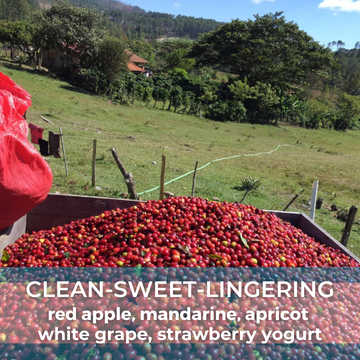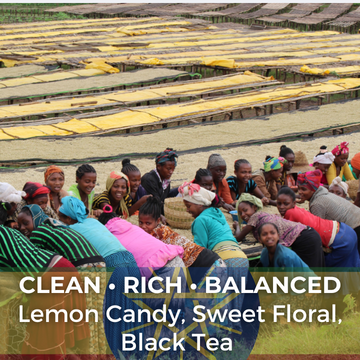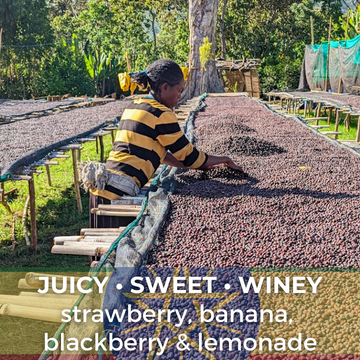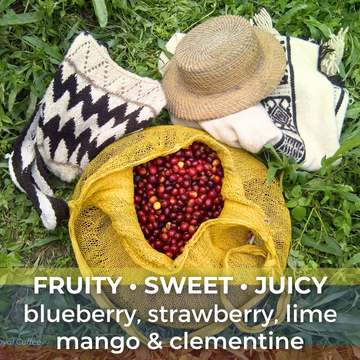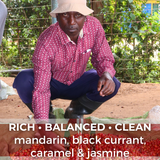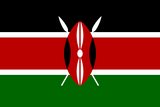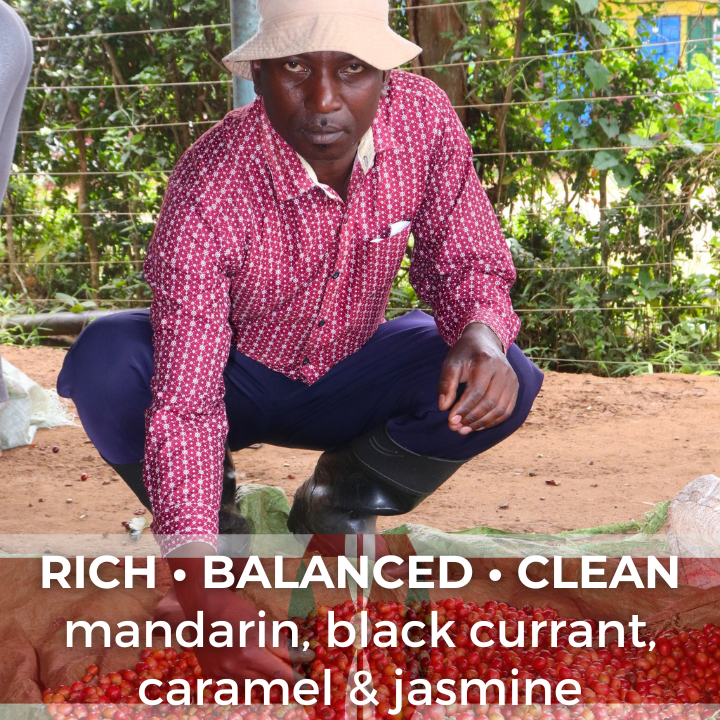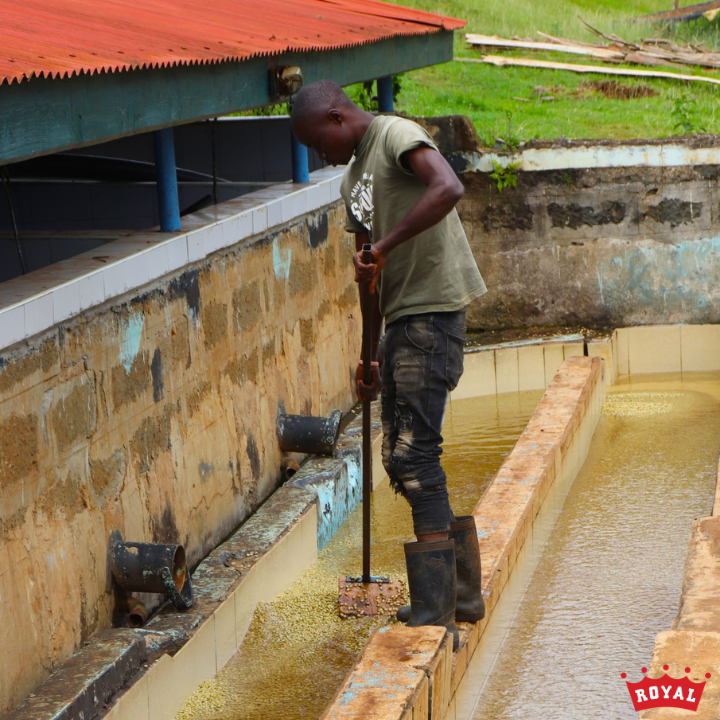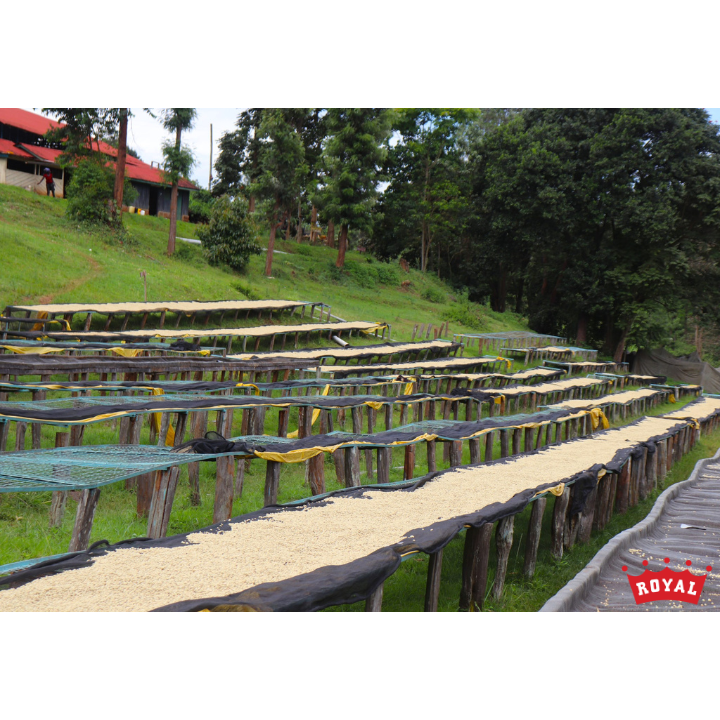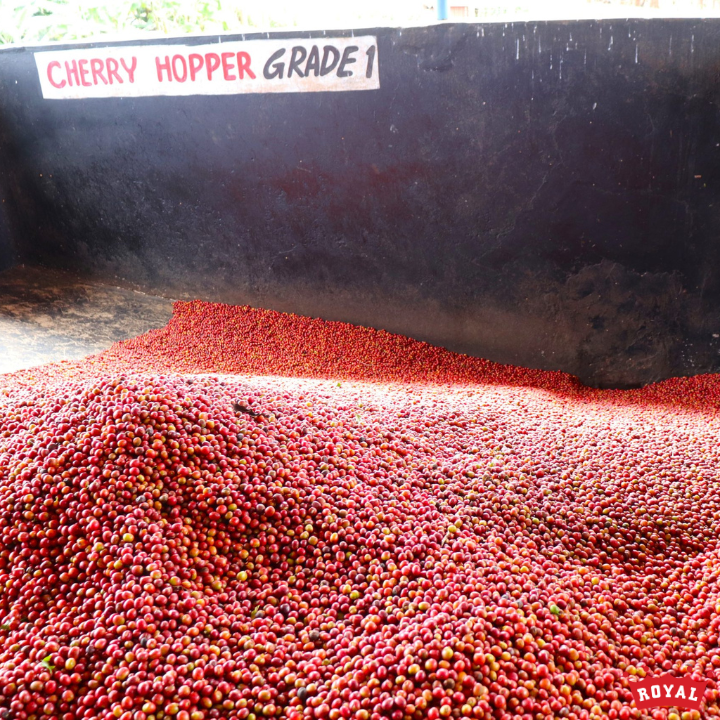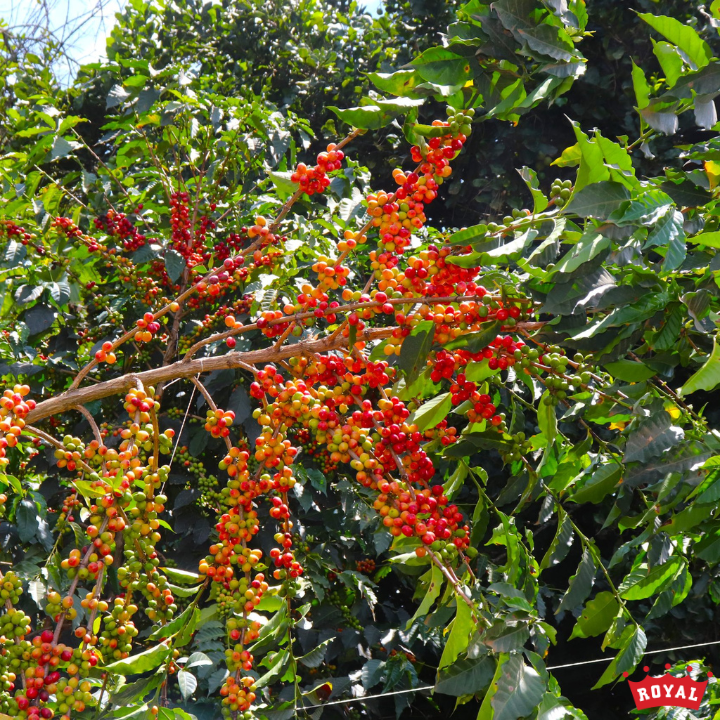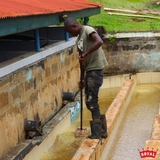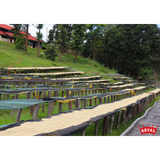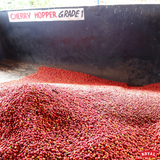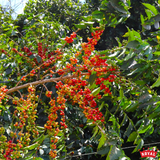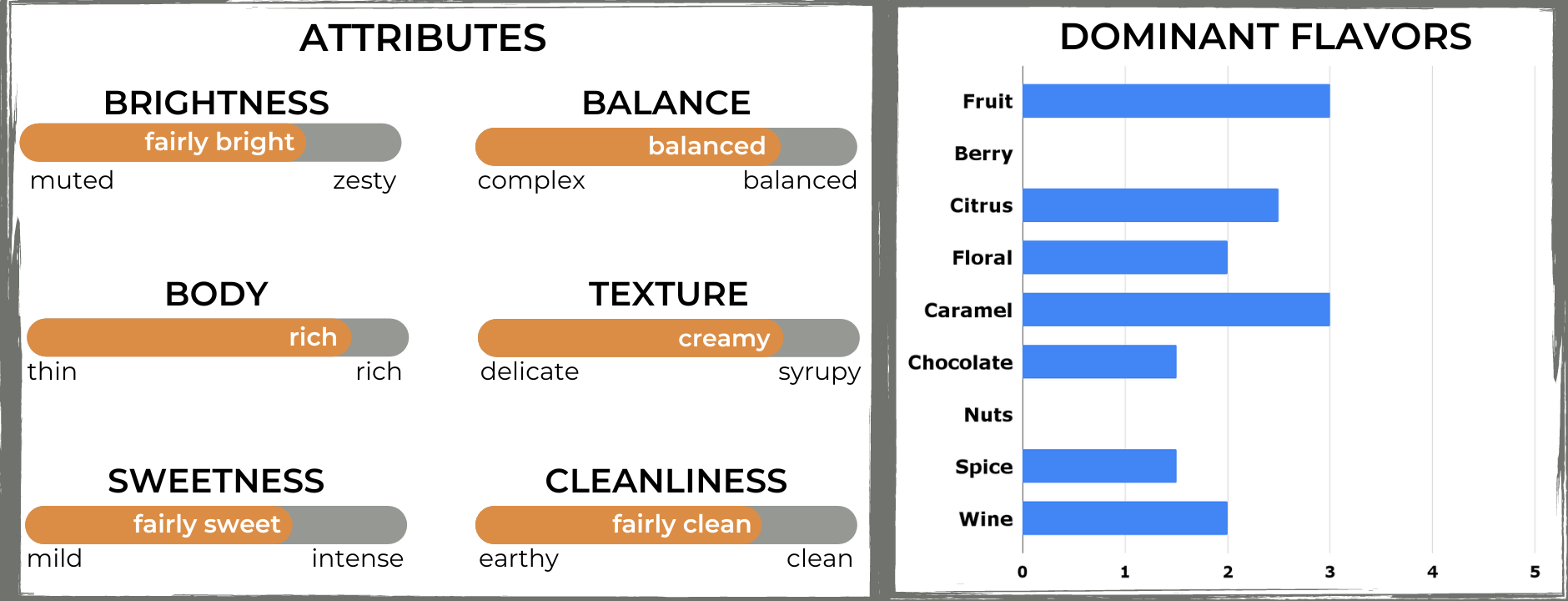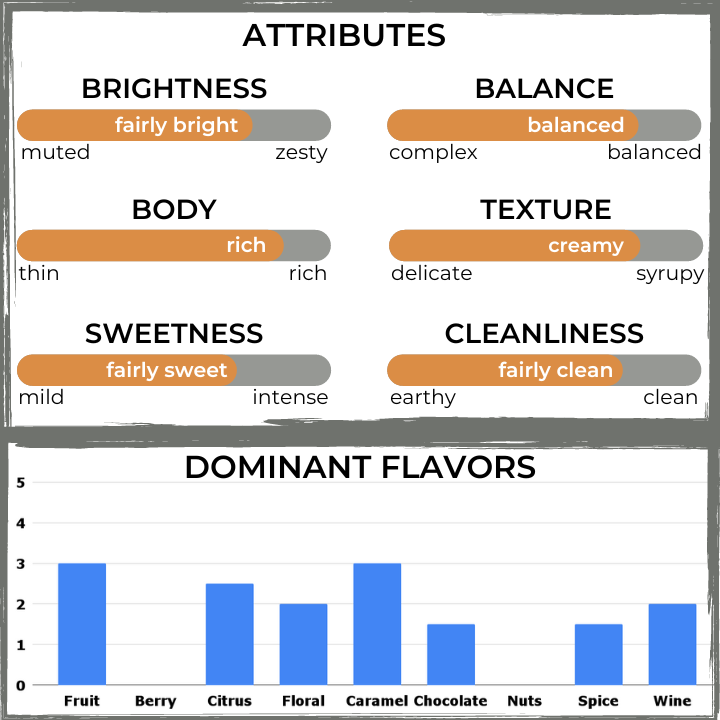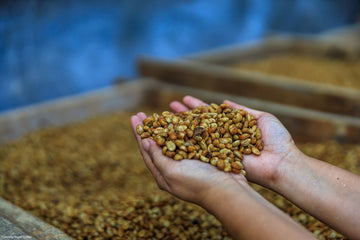Kenya Kirinyaga Mwirua Kariaini AA
This AA grade auction microlot comes from Kirinyaga county, one of the 5 counties surrounding the inactive stratovolcano Mt. Kenya. Here coffee is grown at high altitudes of 4,900 to 6,800 feet above sea level meaning the beans have more time to grow slowing and mature, which allows better nutrient absorption and development of their flavors. Many believe the best coffees in the country and often the world come from this area and local farmers produce about 2 million bags per year. Kirinyaga neighbors Nyeri county, which was the source for all of our Kenyan coffees last year. So this year we decided to hop the fence and see if the grass really is greener on the other side!
Well I don’t know if the grass is any greener, but the coffee absolutely knocks it out of the park! Our cups had excellent body with a creamy texture along with fairly crisp acidity and the characteristic dry, tannic finish. In the cup, the most prominent notes were mandarin orange, black currant, caramel and lovely jasmine. There’s also an herbaceous undertone that gives the cup a depth and complexity that we really enjoy. I know the analogy is overused, but it holds up: the best comparison is a classy, well-aged red wine. Rich, indulgent and deep.
Reminder! This coffee is raw, you must roast it before brewing
Arrival Date: September 15, 2023 US Arrival: August 2023, packed in GrainPro
Acidity & Brightness: Bright and fairly sweet
Balance & Finish: Balanced with a dry, tannic finish
Body & Texture: Full bodied and rich, creamy texture
Flavors: Mandarin orange, black currant, caramel, jasmine with an herbaceous tone.
Grade: Grade AA, grown at 1600 masl
Processing: Fully washed and dried in raised beds
Grower: Smallholder farmers organized around the Kariaini Factory
Region: Kirinyaga County, Kenya
Varieties: SL28, SL34, Ruiru 11 and Batian
Recommended Roast Range: City to Full City (Light to medium)
We like this coffee best at either Light-Medium or Full Medium but you can go a little lighter or darker depending on the flavors you want to accent. Lighter roasts will have a bit more of the mandarin and some zesty brightness as well as a more pronounced dry finish and florals. Slightly darker roasts will bring out some chocolatey tones as well as emphasizing the caramel and winey characteristics. The Scott Labs (SL) varieties commonly found in Kenyan coffee are notoriously finicky in the roaster, so don’t stress out if your results look funny on paper, especially if you’re using heat probes and roast logging software. Remember: Drink the coffee, not the graph! The cup might surprise you.
Royal Coffee - Mwirua is a producer organization that has been around since before Kenya's independence from Britain, since 1954. It is robust in membership and exemplary in quality. This washed lot from the Kariaini factory is a quintessential Kirinyaga coffee: citric and jammy with red currant, tangerine, and berry-like acids.
Central Kenya & Kirinyaga County
Mt. Kenya, at the helm of Kenya’s Central Province, is the second tallest peak on the continent of Africa and a commanding natural presence. The mountain itself is a single point inside a vast and surreal thicket of ascending national forest and active game protection communities. The central counties of Kenya extend from the center of the national park like five irregular pie slices with their points meeting at the peak of the mountain. It is along the lower edge of the forests where, in wet, high elevation communities with mineral-rich soil (Mt. Kenya is a stratovolcano) many believe the best coffees in Kenya, often the world, are crafted. Kirinyaga is one of the best-known of these central counties.
Mwirua FCS and Processing Style
Kenya’s coffee is dominated by a cooperative system of production, whose members vote on representation, marketing and milling contracts for their coffee, as well as profit allocation. Mwirua Farmers Cooperative Society (FCS) is an umbrella organization that represents 8 total factories (centralized wet mills), including Kariaini—which was the first processing site registered under the society in the 1950s. The cooperative society is headquartered in the town of Mukure, in northern Kirinyaga close to the border of Mt. Kenya National Park.
Kenya is of course known for some of the most meticulous at-scale processing that can be found anywhere in the world. Bright white parchment, nearly perfectly sorted by density and bulk conditioned at high elevations is the norm, and a matter of pride, even for generations of Kenyan processing managers who prefer drinking Kenya’s tea (abundantly farmed in nearby Murang’a county) to its coffee. Ample water supply in the central growing regions has historically allowed factories to wash, and wash, and soak, and wash their coffees again entirely with fresh, cold river water.
Kariaini typically ferments for 18-48 hours depending on ambient conditions (the changing mountain climate, as for many processors, tends to dictate fermentation temperatures, and processing staff are required to check fermentation progress every three hours). After fermentation, the parchment is washed in fresh water and brought to the factory’s raised tables to dry, which takes anywhere from 5-30 days, again depending on local conditions. After drying is complete the coffee is conditioned in large perforated bins on site to allow moisture to stabilize, preparing the coffees for transit and a long shelf life. The established milling and sorting by grade, or bean size, is a longstanding tradition and positions Kenya coffees well for roasters, by tightly controlling the physical preparation and creating a diversity of profiles from a single processing batch.
Kenya's Outturn System
“15CK0017” in the title refers to this coffee’s “outturn” number. Outturn numbers are unique microlot codes that are given to each and every batch of parchment delivered to dry mills from individual factories or estates anywhere in Kenya, and are the units on which Kenya’s entire microlot export system is built. Outturns in Kenya are tracked with a shorthand code that places the specific batch of parchment coffee in time, place, and sequentially with other coffees. Outturns are stylized as an 8 or 9-character code, including a 2-digit “coffee week” number, a 2-letter mill code, and a 3 or 4-digit intake number for the coffee’s delivery. So, this particular lot was delivered in harvest week 15, to the Central Kenya Coffee Mill (code “CK”) and was the 17th delivery that week.
